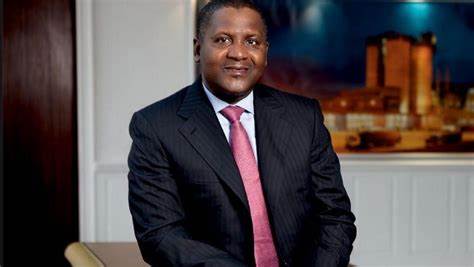
By Charles Muchoki | Africa Guardian
Aliko Dangote, the founder of Dangote Group, has urged African business leaders to take the helm in driving the continent’s transformation. Speaking at the African Renaissance Retreat in Kigali, Rwanda, Dangote highlighted that despite Africa’s numerous challenges, its youthful population and vast natural resources—including about 30% of the world’s mineral reserves and the largest deposits of gold, cobalt, uranium, platinum, and diamonds—present tremendous opportunities for inclusive growth.
“We also have 65% of the world’s arable land and 10% of the planet’s internal renewable freshwater sources. These factors together create countless opportunities for robust and inclusive growth that leverage our human and natural resources to increase prosperity not just in Africa, but globally,” Dangote stated.
He noted that Africa stands at a pivotal moment, characterized by the world’s youngest and fastest-growing population, rapidly expanding cities, and a growing adoption of innovation and new technologies, including Artificial Intelligence.
Dangote acknowledged the obstacles that African businesses face, such as restrictive visa policies, inconsistent government regulations, inadequate technical talent, insufficient infrastructure, foreign exchange crises, inflation, high capital costs, and various conflicts. Despite these barriers, he shared that the Dangote Group has successfully expanded from Nigeria to 14 countries across Africa, diversifying into multiple sectors including cement, fertilizers, sugar, oil refineries, petrochemicals, and agriculture.
“The positive news is that, despite these challenges, we have built a pan-African group that employs over 50,000 people and is on track to generate revenues exceeding $30 billion by the end of 2025,” Dangote said.
He explained that the idea for the retreat had long been in the making, driven by his desire to unite dedicated African business leaders to tackle the continent’s challenges, identify actionable solutions, and promote Africa as a viable investment destination despite its obstacles. The retreat aimed to foster collective action on various issues, including conflict resolution, energy and food security, supply chain disruptions, debt crises, and access to long-term concessional funding for development.
“This small, private, high-level gathering to discuss these issues and align on how we will shape our development narrative is long overdue. Bringing together the foremost entrepreneurs, leaders of pan-African companies, key figures from development institutions, global institutional leaders, investors, civil society activists, and respected political leaders, this is a chance for us to have an open and honest dialogue to consolidate our common ground,” Dangote said. He added, “We are coming together not just as leaders of our respective institutions but as visionaries committed to transforming our societies. It is our responsibility to play our role in transforming our continent. No one else will do it for us—especially those of us in this room.”
Dangote expressed hope that the retreat would generate initiatives capable of shaping Africa’s future and benefiting its people. He acknowledged the contributions of President Paul Kagame of Rwanda, former President Olusegun Obasanjo, former President Ellen Johnson Sirleaf, and former Prime Minister Hailemariam Dessalegn, while emphasizing the need to move from dialogue to decisive action and tangible impact.
The retreat participants resolved to encourage regular high-level dialogue between African private sector and political leaders. Other proposals included advocating for the ratification of the free movement of people protocol, launching the African Renaissance Companies Gender Compact, and convening top global business leaders of African descent. Additionally, the leaders aimed to support initiatives to significantly reduce logistics costs across the continent and expand internet access for a larger portion of Africa’s population.
___
